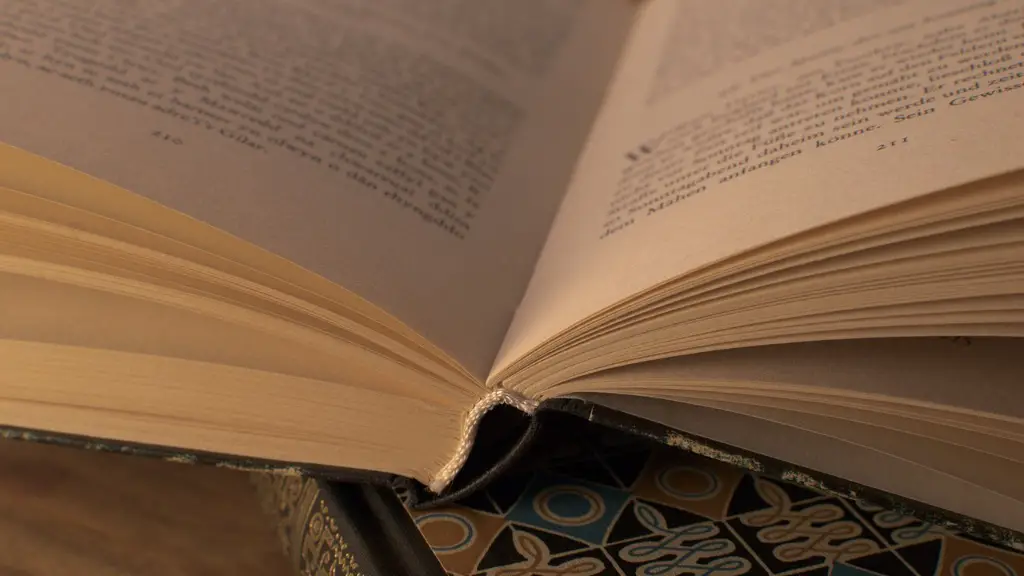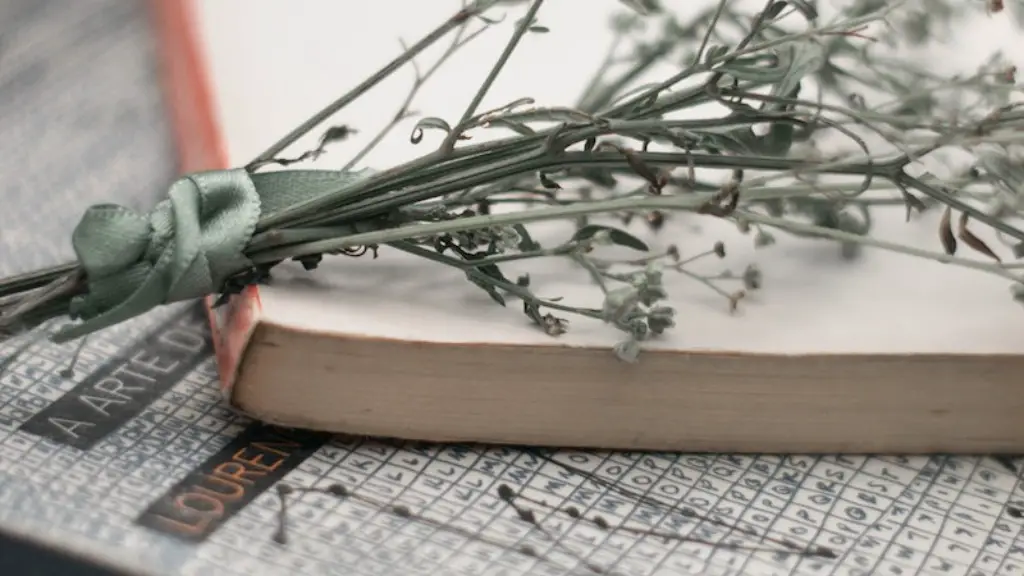A Verse of Poetry
Poetry is a form of expression that transcends language barriers and encourages an emotional connection with the reader. It is often regarded as an art form, with poems conveying messages of deep emotion, courage, and expressive beauty. Though some consider poetry to be outdated and useless, its influence is often underestimated and its true power yet to be fully understood.
Poems are known to articulate suffering and pain with delicate metaphors, often expressing a concept more impactfully than any other form of literature. Despite the fact that it is associated with sadness, it can also be full of joy and delight. Every word in a poem has a significant meaning, offering a viewpoint on life that can be thought-provoking and inspiring. In a way, poetry is a means of escape from the mundane, allowing readers to explore a completely different dimension filled with beauty and creativity.
Those familiar with the work of classic poets such as William Wordsworth and William Shakespeare, recognize the important themes and symbols that are addressed in their poems, such as death and love. Wordsworth’s poetry often glorifies nature and contemplates mortality, and Shakespeare’s often contains complex metaphors that cannot be fully understood until the poem is read several times. Each classic poet has their own unique style, often making use of a specific form of language or imagery that helps to create an emotionally charged atmosphere.
The most significant feature of a poem is the structure and language it is written in. A verse of poetry can be composed in a variety of forms, from sonnets to limericks, each of which ha with their own set of conventions. A sonnet typically contains fourteen lines and follows a rhyme scheme. Often writers choose to write using a specific form of language, or make use of symbolism in order to create a more powerful impression. Furthermore, it is known that the rhythm and pacing of a poem can be equally as important as the words chosen.
Creating A Verse Of Poetry
Writing a verse of poetry requires more than the mere act of stringing together words; it requires an emotional response, an exploration of one’s innermost thoughts and feelings. By expressing one’s experiences and feelings into words, an individual can pour out their heart on paper and explore its depths. Many consider writing poetry to be cathartic, allowing them to escape into a creative world. It’s possible to craft a verse of poetry in any way, allowing the writer to experiment with its length and form, letting their creativity take over.
It is important to keep in mind the words chosen when writing a poem, each word chosen for its impact. To evoke a powerful emotion in readers each word should resonate with the reader. Poems are often created using metaphors and similes to convey a powerful message that intends to provoke thought or emotion from the readers, making use of poetic devices such as alliteration, personification, metonymy and assonance. Despite being scarcely known and often undervalued, these devices help to create a vivid image in readers.
Writing poetry can be therapeutic, allowing the writer to explore their feelings in a creative and meaningful way. Through poetry, the writer can experience a sense of pride while they explore and articulate their thoughts, feelings, experiences and opinions in a unique and powerful way. Furthermore, poetry can be a great tool to document one’s experiences and observations of life. A masterful verse of poetry will leave its reader and the author feeling profound and connected with one another.
The Power Of Poetry
The power of poetry is often unrecognized. It is known to have been used as a tool of protest, with many famous poets such as Maya Angelou, Robert Frost and Langston Hughes exploring their experiences of racism, freedom and oppression through their work. During the Civil Rights Movement, many poets used their words as a form of resistance, expressing the harsh reality of life under segregation and racial prejudice. This form of expression continues to this day, with many poets using their work as a means of protest and as a platform to engage in social discourse.
Poetry also exists outside of its ability to resist, it provides comfort and solace for many. Whether it is a poem used to illustrate a personal experience, or to describe love and pain, many feel a sense of comfort when reading a verse of poetry that has been written by someone who understands their struggles. Poets can become a home for those who have become lost and isolated in the world, their words providing an escape while simultaneously offering understanding and compassion.
Poetry can also have a political aspect, with many poets voicing their opinions on global issues such as climate change, war, poverty and inequality. By writing their opinions and experiences of a situation into verses of poetry, some poets are able to rally like-minded individuals and raise awareness of an issue more powerfully than when protesting with signs and chants.
The power of poetry continues to be explored and recognized by generations of poets. Despite its often neglected status, its true power is gradually being acknowledged, and its influence and importance becoming ever clearer.
The Beauty Of Poetry
Due to its creative nature, the beauty of poetry is often reflected in its aesthetics. By making use of creative forms of structure and language, the composer of a poem can create a unique piece of literature that speaks to its readers and conveys its message more effectively than other forms of literature. In addition, literature also exists to create a shared experience for its viewers. By expressing its creator’s view of life and experiences, it allows its reader to gain a greater understanding of the world, creating a space for debates, conversations and different forms of discourse.
Though a poem may look intimidating at first, its beauty lies in its ability to create a personal connection between its creator and reader. It is known that the most powerful memory of a poem is its ability to evoke emotion in its reader and make them feel as if the words were written in their very own hand. Every word chosen has a powerful meaning, each sentence delivered with precision and careful craft. In addition, the beauty of a poem lies in its ability to create an atmosphere of escapism, transporting its readers to a realm of creative adventure and exploration.
From expressions of love to pieces of profound sadness, the beauty of poetry truly lies in its ability to convey profound emotion. Every poem recited or written is a testament to its readers and a promise to them that their feelings will be heard and understood. In this way, the beauty of a poem reflects and deepens the beauty in life.
Conclusion
Though often forgotten and undervalued, the power and beauty of poetry continues to be explored and appreciated by generations of writers and readers. As a means of expression and escape, poetry provides an outlet for emotions and experiences that is unrivaled by any other form of literature. By providing its readers with an opportunity for connection and exploration, poetry allows its audience to develop a deeper understanding of life and its wondrous gift. In this way, poetry reveals the many facets of life and its infinite forms of beauty.



